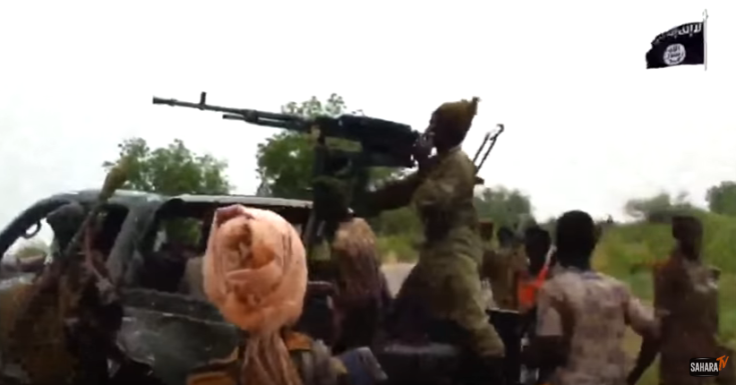Boko Haram's fatal ambush destroys hope of boost to Nigeria's economy with Borno oil
Rescue operations to free abducted oil contractors ends in dozens of deaths in restive Borno state.
Nigeria has halted oil exploration in the north after suspected Boko Haram terrorists killed dozens of people, including oil contractors, in a deadly ambush.
The attack occurred on Thursday, 28 July, when rescue efforts to free around 10 members of a geological research team, who went missing in a suspected Boko Haram abduction, led to dozens of deaths. The workers, employed at the University of Maiduguri in the restive Borno state, had gone missing earlier this week.
There are conflicting reports on the number of deaths. Nigerian news site Premium Times reported that at least 27 people died, including soldiers and members of the Civilian Joint Task Force (CJTF).
The BBC said the death toll amounted to 40. Of these, at least five people were members of the oil exploration team.
Minister of State for Petroleum Resources, Ibe Kachikwu, said the federal government had decided to halt oil exploration in the Lake Chad basin area - which includes swaths of Nigeria - until it gets security clearance.
"If NNPC (Nigerian National Petroleum Corporation) cannot do its job because of criminality, it portends danger that the economy would grind to a halt. Further activities of the corporation in the Basin will be based on sufficient security in the area," he was quoted as saying during a press briefing in the capital Abuja.
"The security agencies, who are experts in the field of surveillance, will take a second look at the terrain before certifying it safe for exploration activities," he added.
Nigeria is one of Africa's largest crude oil producers. However, production has fallen over the past year, due to renewed militancy in the country's Niger Delta region, where the country's oil reserves are.
The oil discovery in the north increased hopes that the country's oil production could increase and help restore Nigeria's crippled economy. However, some analysts have pointed out that the presence of Boko Haram in the area could pose a thereat to oil workers and researchers.
The group has waged a war against the Nigerian government. Its eight-year-long insurgency has caused the deaths of thousands of people in Nigeria's north east, as well as neighbouring countries.
Security analyst and counter-terrorism expert David Otto believes oil reserves in the country's north could start a new phase of the Boko Haram insurgency. Terrorists could start kidnapping people for ransom, a tactic widely employed by militants in Nigeria's oil-rich Niger Delta region.
"Any money generated from oil directly or indirectly will boost Boko Haram's recruitment tactics in an area that is full of unemployed and vulnerable young men and women," Otto told IBTimes UK.
"Addressing the root causes of Boko Haram crisis, using all means necessary including negotiation for surrender is the only viable alternative to the current status quo. Otherwise, the discovery of oil in the North may just be another curse as seen in the Niger Delta region," he continued.
Nigeria up close: Check out our Flipboard magazine
Fight against Boko Haram

Boko Haram fights against Western influence in Nigeria and aims to impose its version of Sharia law throughout occupied territories. In 2016, the group officially allied with Isis.
The UN says at least 20,000 people have died in Nigeria and neighbouring states since the Boko Haram insurgency became violent in 2009. The conflict has also displaced at least 2.1 million people.
The group used to control total territory the size of Belgium. However, Nigeria's ongoing military operation, Lafiya Dole, and a regional offensive – consisting of 8,700 troops from Nigeria, Niger, Chad, Cameroon and Benin – have scored some successes, with soldiers recapturing key territories and releasing thousands of civilians held captive by the group.
Last year, the army claimed it had stormed Boko Haram's last known stronghold in Sambisa Forest, which the group denied.
Earlier this year, a Boko Haram faction released 82 girls who had been held captive since April 2014. The release was the result of negotiations that involved several actors, including the Swiss government.
The release suggested there could be further collaboration between the government and the group, now split in at least two factions, after Isis replaced Abubakar Shekau as leader with Abu Musab al-Barnawi, a former Boko Haram spokesperson.
The country's government and army have often claimed the fight against the insurgents is over, but violence continues.
© Copyright IBTimes 2025. All rights reserved.






















